SVB meltdown: Indian govt to meet affected startups, EV makers questioned about mispricing products
This and more in today’s ETtech Morning Dispatch.
Also in this letter:
■ EV makers meet Govt officials over mispricing allegations
■ Stakeholders in favour of keeping the safe harbour in Digital India Bill
■ How Indian IT firms are leveraging Generative AI
Indian government to meet startups over SVB crisis

The IT ministry will hold a meeting with Indian technology startups this week to assess the impact of the sudden collapse of Silicon Valley Bank and its impact on their businesses.
Centre’s intervention: On Sunday, the minister of state for electronics and information technology Rajeev Chandrasekhar said he intends to meet startup representatives in the coming week to take stock of the evolving crisis.
Impact on India: Indian startups have been adversely affected by these developments, with a particular impact on those in the software-as-a-service (SaaS) industry and those supported by startup accelerator Y Combinator. ET reported on Saturday that up to 60 Indian startups backed by Y Combinator have deposits of over $250,000 each that are currently trapped in SVB.
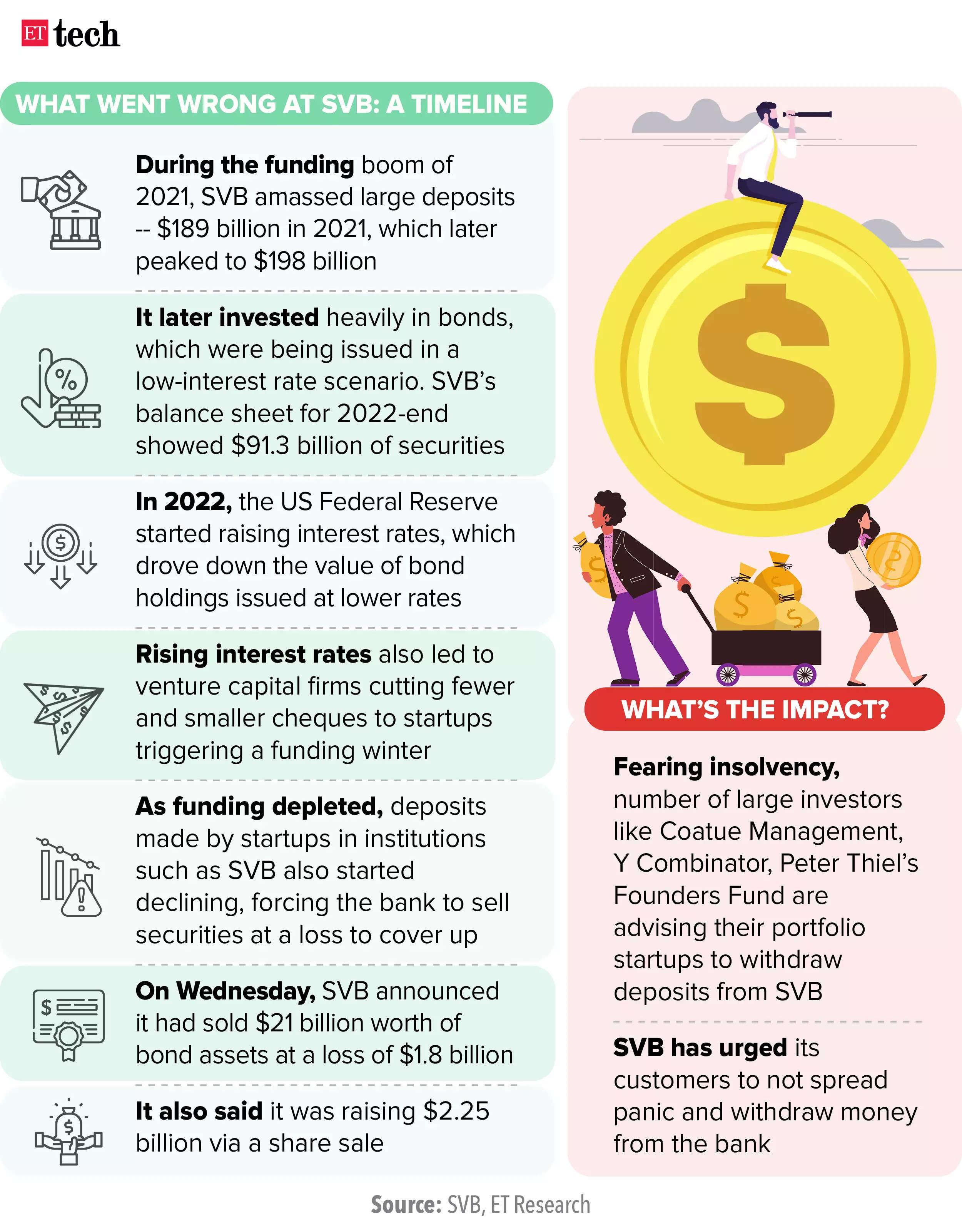
Catch up quick: On Friday last week, the Silicon Valley Bank, a major lender for startups globally, was shut down by regulators in the US state of California and was put under the receivership of Federal Deposit Insurance Corporation (FDIC). Silicon Valley Bank had about $209 billion in total assets and about $175.4 billion in total deposits, as of Dec. 31, 2022.
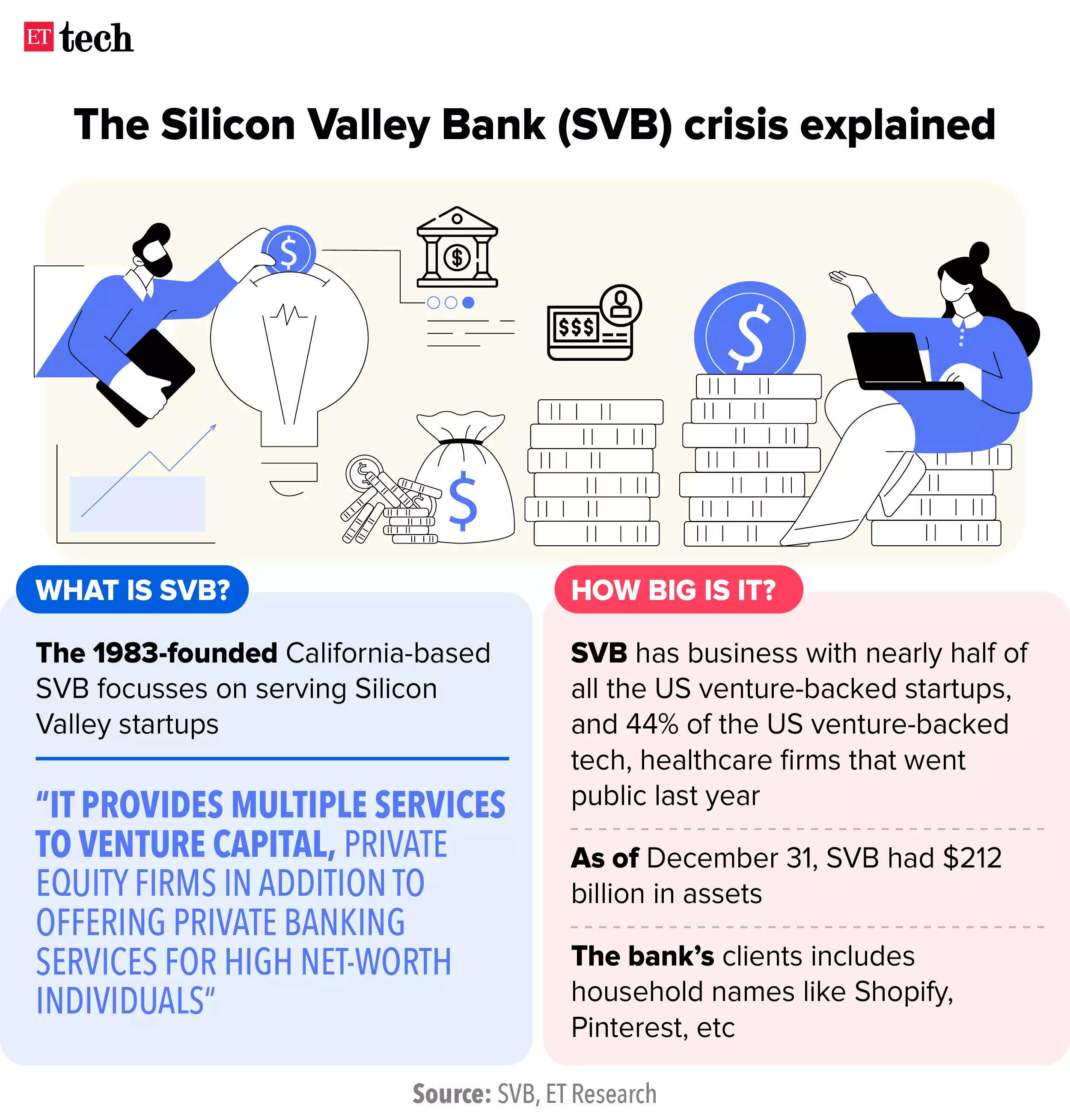
Nazara Tech exposure: Nazara Technologies, a sports media and gaming company listed on the stock exchange, reported that two of its subsidiaries have INR 64 crore ($7.75 million) that are currently held up in Silicon Valley Bank (SVB), which collapsed last week.
In a filing to the stock exchanges, the company said: “Nazara Group (Nazara Technologies Ltd and its subsidiaries) continues to maintain healthy reserves of cash and cash equivalents in excess of INR 600 crore excluding the SVB impacted funds.”
YC updates: Startup accelerator Y Combinator, which supports over 200 startups in India, has filed a petition with US Treasury Secretary Janet Yellen to request relief and attention for the collapse of Silicon Valley Bank (SVB), which has resulted in deposits of numerous startups that banked with the California-based institution becoming frozen.
The petition, written by Y Combinator President Garry Tan, has been signed by over 3,500 CEOs and founders, including nearly two dozen startups based in India.
Also read | ETtech Explainer: how rising US interest rates caused a pincer movement on Silicon Valley Bank
EV makers meet government officials to explain FAME II mispricing allegations
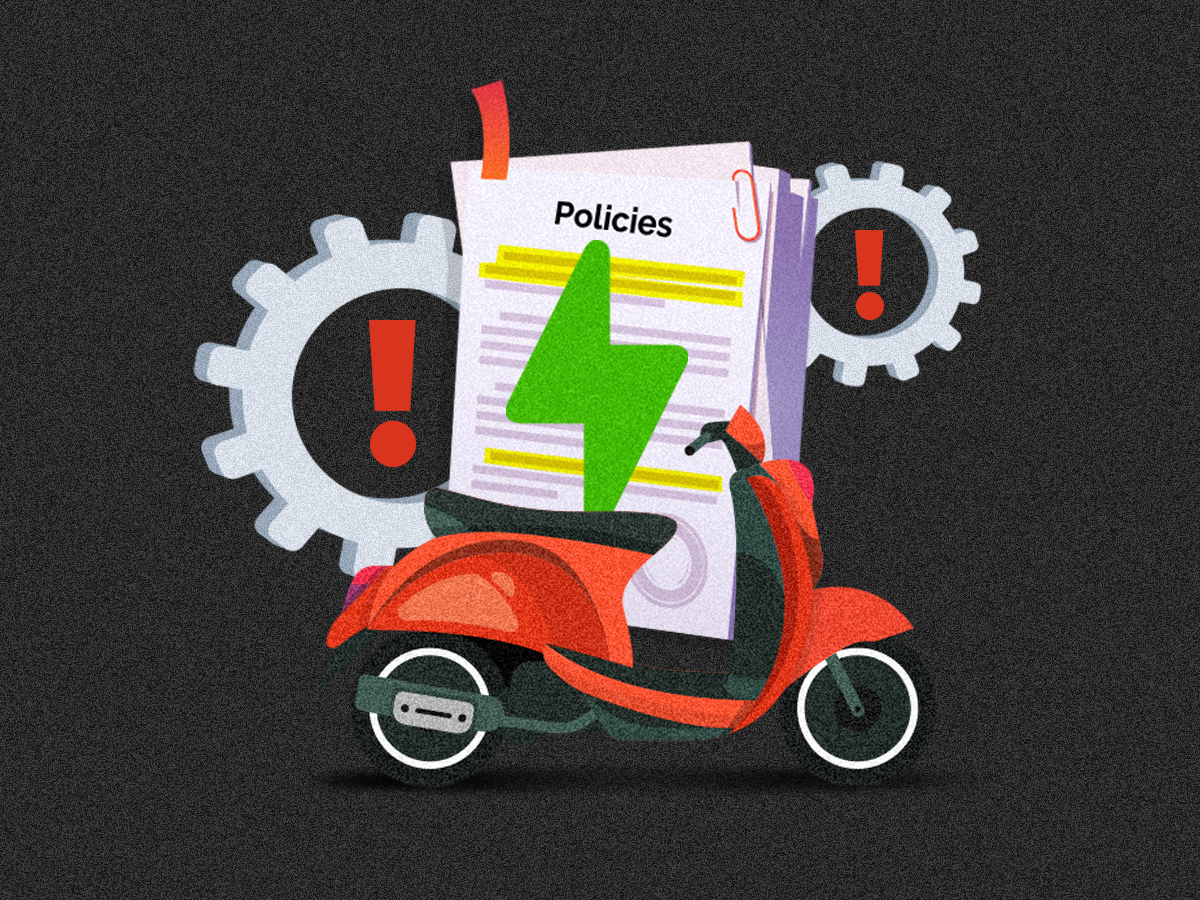
Following the recent whistleblower allegations on EV makers about them mispricing products to avail subsidy, representatives from Ola Electric, Ather Energy, TVS Motor and Hero MotoCorp have met with government officials to defend themselves, sources said.
The EV makers had responded to an emailed communication sent by testing agency Automotive Research Association of India (ARAI) seeking clarification if they billed their chargers and add-on software upgrade separately to avail sops under the government’s Faster Adoption and Manufacturing of Electric and Hybrid Vehicles (FAME) II scheme.
Catch up quick: EV makers including Ola, Ather, TVS Motor and Vida are under the scanner for allegedly mispricing their electric two-wheelers to make them eligible for subsidy under the scheme Faster Adoption & Manufacturing of Electric Vehicles (FAME), ET reported on February 9. The EV makers may have falsely claimed at least Rs 300 crore subsidy.
Rethinking the scheme: The development also comes as the government is relooking at the prospect of not extending the FAME-II subsidy even as the industry demands an extension. ET had reported on March 7 that the Rs 10,000-crore scheme is unlikely to be extended after the end of the next financial year.
Also read | ETtech Explainer: Why is government’s FAME-II scheme for EV companies likely to be pulled off?
TWEET OF THE DAY
Digital India Bill consultation: Stakeholders suggest retaining safe harbour provision
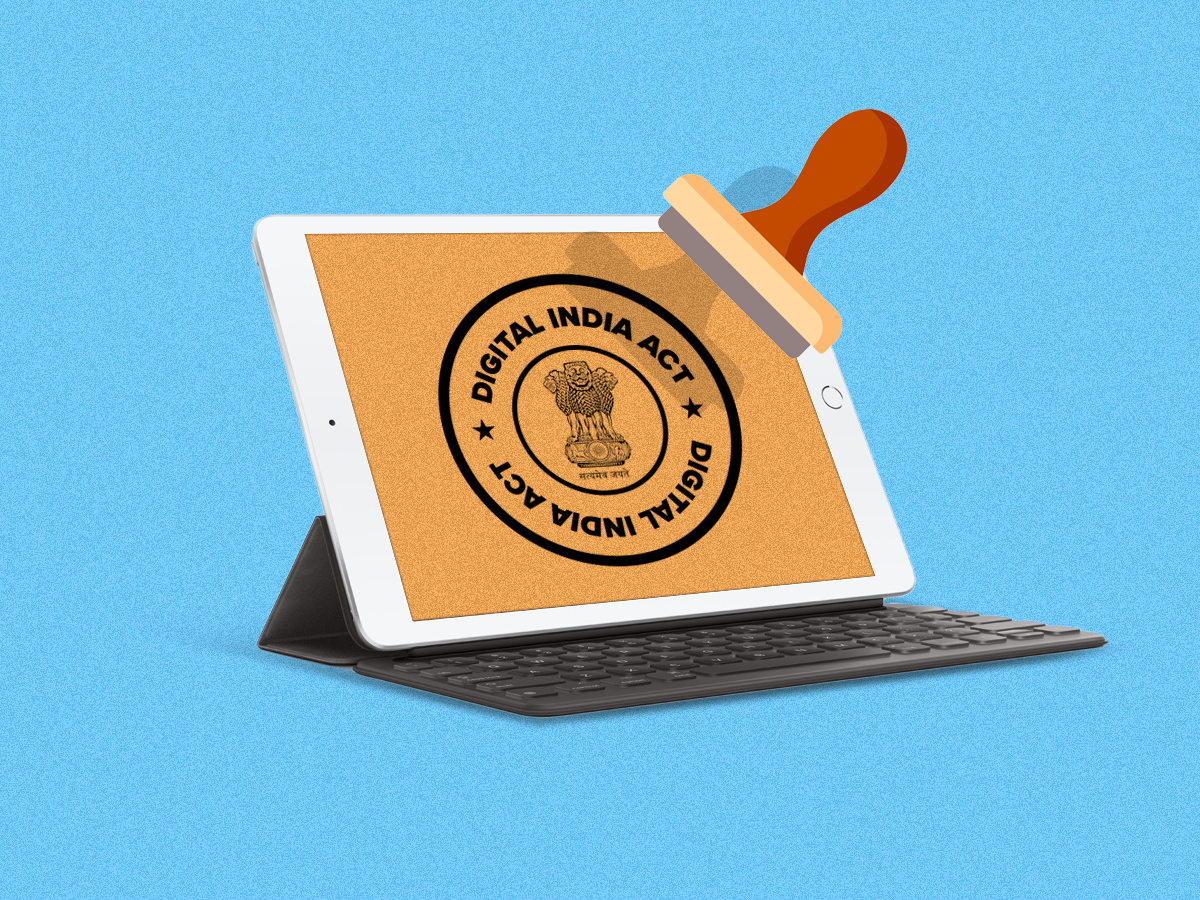
During the initial consultation of the Digital India Bill, stakeholders recommended that the safe harbour provision in the existing Information Technology Act, 2000 be maintained by the government.
What is the provision? The safe harbour provision currently provides social media intermediaries with immunity from the content posted by third parties on their platforms.
The first Digital India Bill consultation was held in Bengaluru on Thursday with as many as 300 stakeholders participating. These stakeholders comprised lawyers, technology policy groups, technology companies and consumers among others.
Govt’s stance: Online platforms that are pretending to be dumb intermediaries and allow cybercrime to proliferate will not be tolerated, Rajeev Chandrasekhar, minister of state for electronics and information technology, had said during his presentation on the proposed Digital India Bill on Thursday.
The minister had also spoken about the need for separate rules for each class of intermediaries like e-commerce, digital media, search engines, gaming, AI, over-the-top platforms, telecom service providers, ad-tech, and significant social media intermediaries.
How Indian IT firms are leveraging Generative AI

Hopping on to the trend of using Generative AI, Indian IT firms including Tata Consultancy Services (TCS) and Wipro, have started exploring use cases around ChatGPT and other generative AI technologies for their clients as well as use internally.
From HR helpdesk to coding buddy: Bengaluru-based Wipro is presently utilising Generative AI in various domains, including but not limited to, generating code, transforming code, producing test data for application development, creating marketing content and knowledge assistants, and using quality processes to capture productivity and service assurance data for releasing preliminary benchmarks.
Similarly, TCS chief information officer Abhijit Mazumder said the new class of AI called Generative AI, which includes recent examples like ChatGPT and DALL-E, will significantly augment employee and customer experience.
Quote unquote: “Generative AI as a class, of which ChatGPT is just one example, is a significantly different way of approaching creative problems using the help of the Internet. AI will change the way people look at programming as picking 70% of already existing source code from open source libraries now becomes easier,” said Sid Pai, founder of VC firm Siana Capital.
Other Top Stories by Our Reporters
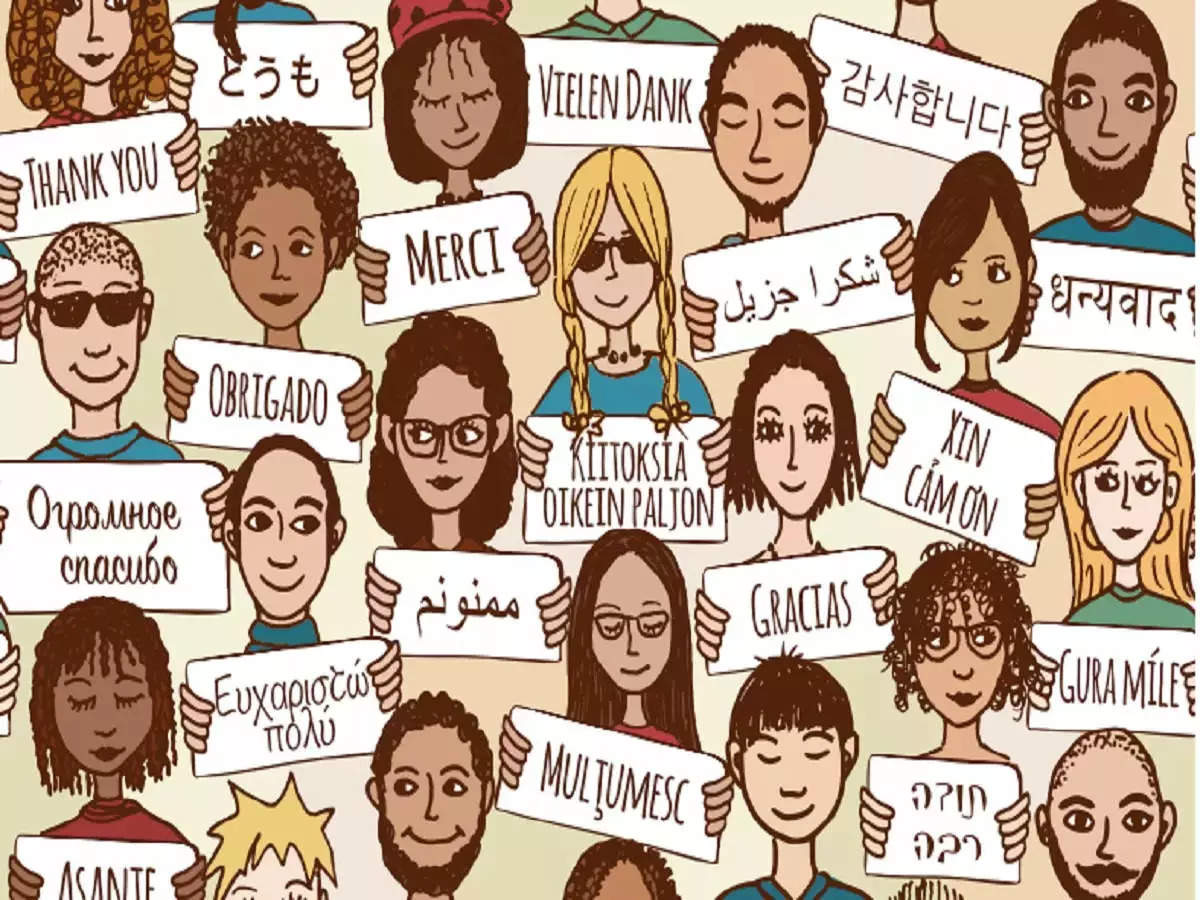
Microsoft Research India is creating tools to help preserve fast disappearing languages: In 2015, the Microsoft Research lab in India (MSR) started a project to build a digital presence for these low-resource languages. Project Ellora — Enabling Low Resource Languages – aims to preserve a language for posterity and ensure that communities that speak these languages can participate in the digital world.
Connected clothes to 4G network on the moon: a peek into the future of telecom | Xiaomi launched its Xiaomi 13 and Xiaomi 13 Pro models globally, OnePlus showcased its concept device, which comes with a cooling technology that brings down its temperature by 2-3 degree Celsius. at the recently concluded Mobile World Congress.
Read here about the future of telecom
Global Picks We Are Reading
■ Fights Over Rural America’s Phone Poles Slow Internet Rollout (WSJ)
■ TikTok’s viral monks are clashing with Buddhist authorities (Rest of World)
■ Get Ready to Meet the ChatGPT Clones (Wired)
Graphics & illustrations by Rahul Awasthi
For all the latest Technology News Click Here
For the latest news and updates, follow us on Google News.

